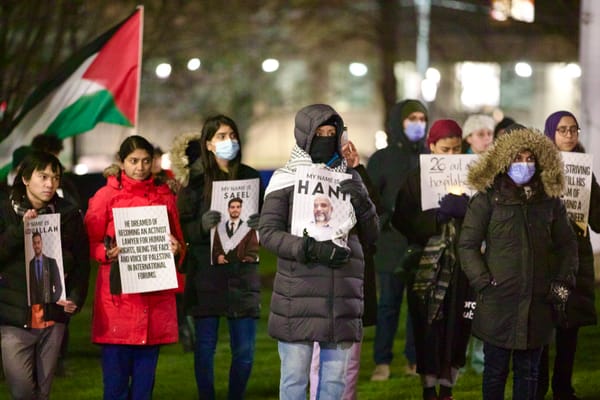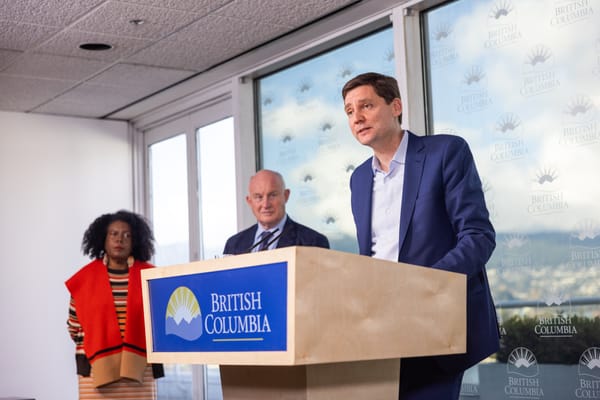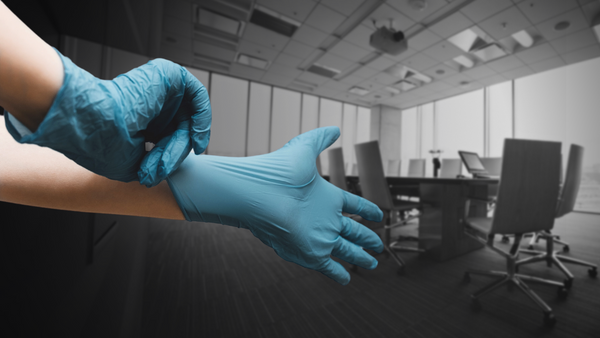It’s been a busy few months of sticking needles into arms.
More than a billion COVID-19 vaccine doses have been delivered worldwide. At least 20 per cent of these shots have been administered in the United States, which has approximately 4 per cent of the world’s population. The U.S. has also produced more than 160 million vaccine doses — and exported none.
While people in the imperial core are largely waiting for their turn to get jabbed so life can return to normal, the Global South is dealing with virus surges, deaths and lockdowns. In India, new variants, among other issues, have led to record breaking case counts, with nearly 380,000 reported yesterday alone.
Western countries have responded by promising help for India: Canada has pledged $10 million in aid, PPE and ventilators; the U.S. has pledged medical equipment and raw vaccine materials; the United Kingdom has pledged ventilators and oxygen concentrators. Yet in the long-term, these countries will need vaccines more than external aid. And they’ll need to be able to make those vaccines themselves.
The Economist Intelligence Unit (EIU) predicts that while the U.S., Western Europe and a few other countries will achieve widespread vaccination coverage by late 2021, China and India (about a third of global population) will reach that point by late 2022, and it will take at least until 2023 for most of Africa, Central Asia, Pacific Island nations, and parts of Central and South America.
In short: rich countries who can recover faster will see their economies rebound much sooner. They will get richer. Poor countries — in that position due to centuries of colonialism and natural resource theft — will spend an extra two or three years struggling with lockdowns, masks and stretched healthcare systems, and all of the corresponding economic impacts. They will get poorer.
The EIU attributes delays in international vaccine distribution to “current global production bottlenecks.” But that obscures the fact that this inequality is the result of a deliberate choice to make pharma companies rich and enforce the status quo. Unequal vaccine access is intentional, and it amounts to vaccine apartheid.
Currently, vaccines are owned by pharmaceutical companies, which funded development through bilateral deals with various countries — you give us money, and we’ll give you this many doses if our idea works out. At the beginning of the pandemic, when experts weren’t sure which vaccines would succeed, rich countries spent billions buying up hundreds of millions of doses from a huge range of manufacturers. Some vaccines worked, and they got distributed to countries based on who had paid first.
COVAX, the World Health Organization plan to distribute free vaccines to countries in need, was supposed to help with this inequality. But as of April 10, the scheme had only delivered 38 million doses.
Moreover, the scheme doesn’t promise enough doses to fully vaccinate populations. Seth Berkley, CEO of Gavi (a vaccine organization that’s co-leading COVAX), explains that, “Even though self-financing participants can request for enough doses to vaccinate between 10-50 per cent of their population, no country will receive enough doses to vaccinate more than 20 per cent of its population until all countries in the financing group have been offered this amount.”
Moreover, as the New York Times has reported, “Health officials say they are grateful, but even COVAX shots come with a hitch. Vaccines covering the first 20 per cent of Kenya’s population were free, but only on the grounds that the government pay for enough doses to cover another 10 per cent of its people. For Kenya, that bill is expected to run close to a budget-straining $130 million.”
So, Global South countries are still expected to wait in line behind states in the imperial core, who are hoarding supplies. Canada, for example, has ordered enough doses to vaccinate everyone five times.
The obvious solution is for every country to make their own vaccines. However, vaccines are classed as intellectual property. More than 100 countries have proposed a waiver that would ignore IP rules to let more facilities globally produce vaccines. The pharmaceutical and entertainment industries, among many others, as well as the handful of countries that bought vaccines through bilateral agreements, are lobbying against the proposal.
As Madhuri Sastry and Suchitra Vijayan argue in The Nation, corporate interests play a huge role. The U.S. is hoarding vaccines under Trump-era ‘America First’-style contracts that state the government can’t use any materials outside of the U.S. The government also shields manufacturers from any liability. “No other country protects its pharma companies this extensively,” the writers note. “The U.S. government could easily have insisted on the ability to protect people across the globe by sharing vaccines; instead, it prioritized the protection and profits of pharma companies.”
Self-appointed public health tsar Bill Gates also opposes sharing COVID-19 vaccine information with the Global South. He claims it’s to ensure health and safety standards, implying these states can’t be trusted to make high-quality products, despite the fact that they have their own national regulators. And it’s not like the West has a perfect record either, as a U.S. factory recently botched as many as 15 million Johnson & Johnson doses.
Formally, Canada is undecided on the IP waiver, yet in practice this is just tacitly supporting its powerful allies. Recognizing this, Médecins Sans Frontières includes Canada in its list of countries “blocking or delaying the proposal.”
Vaccine inequality further entrenches colonial relations, where colonized countries are forced to rely on their oppressors to deal with crises. Western states get to pat themselves on the back for sending personal protective suits or announcing aid packages, while still perpetuating, and benefitting from, the systems that cause these issues in the first place.
In December, Passage columnist Nora Loreto wrote about how “Canada is robbing the Global South of a pandemic recovery.” Embarrassingly — and predictably — those in power have done nothing to change that outcome since then. Canada continues to prioritize keeping pharmaceutical companies rich over keeping people alive, and millions are suffering as a result.







